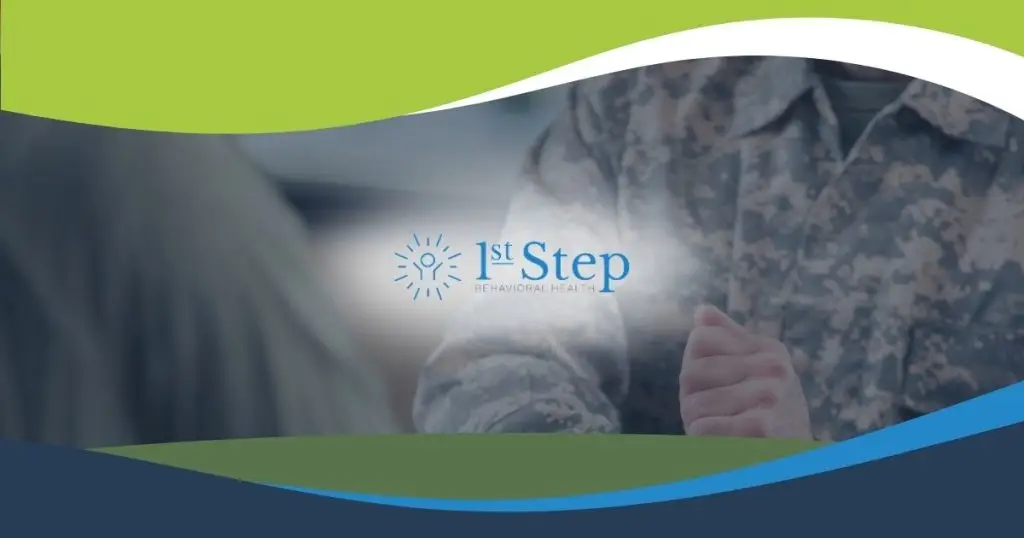The nation’s heroes make immense sacrifices in the line of duty and after they return home. Due to the stressors they face, some veterans turn to drugs and alcohol to cope.
If you or someone you love is a veteran struggling with addiction, it is important to know that help is available. Addiction treatment facilities like First Step Behavioral Health offer veteran-specific treatment programs to help veterans and active duty military members recover from addiction and mental health issues.
Veterans face unique challenges in their recovery journey and they have specific treatment needs that are different from those of the general population. This article will explore the needs of veterans in rehab and how to choose the right addiction treatment program.
Understanding the Needs of Veterans
Everyone is unique when it comes to their background and treatment needs, however, veterans often struggle with issues such as:
Treatment for Trauma & PTSD
Veterans endure trauma while on the battlefield. These emotional wounds aren’t easy to heal and left untreated, trauma can turn into post-traumatic stress disorder (PTSD). An estimated 10-20% of veterans suffer from PTSD.
PTSD and addiction are closely linked as people abuse drugs and alcohol in an attempt to escape the pain caused by trauma and the symptoms of PTSD. As a result, a veterans rehab center needs to provide comprehensive treatment for trauma and PTSD.
Addressing Reintegration Challenges
The battles faced during deployment aren’t the only challenges veterans face. They also experience various struggles while reintegrating back into society. Between isolation, the effects of trauma, and shell shock, many veterans find it incredibly difficult to cope upon returning home. Some even find themselves unemployed or experiencing homelessness. A quality veterans rehab center must provide resources and support that can help individuals navigate common reintegration obstacles.
Psychiatric & Mental Health Treatment
Up to 5.2 million veterans have at least one mental health disorder, and mental health and substance abuse are closely linked. Leaving mental illnesses undiagnosed or untreated during rehab can increase the risk of relapse in the future, so it’s crucial to choose a veteran’s addiction treatment program that provides extensive psychiatric and mental health treatment.
Pain Management
According to the Department of Veterans Affairs (VA), 1 in 3 veterans have been diagnosed with a condition related to chronic pain. Pain is often managed with opioids, but these medications are highly addictive. If you or someone you love is a veteran struggling with chronic pain and addiction, be sure to choose a treatment program that offers pain management. Pain management treatment for veterans may involve medications like methadone or Suboxone as well as therapies like physical therapy, massage, acupuncture, or chiropractic.
How to Choose a Veterans Rehab Program
When choosing an addiction treatment center for veterans in Florida, it’s critical to consider the unique needs of veterans and choose a rehab program that can address those needs.
Things to look for in a treatment program for veterans include:
- A trauma-informed approach – Trauma-informed care recognizes the different ways in which trauma can affect one’s life. It promotes creating a safe, supportive, and trusting environment in which individuals feel safe in discussing their trauma and the emotions that come with it. This approach also focuses on empowering military service members to change their lives for the better. A trauma-informed approach can help veterans move past the emotional battle scars that lay beneath the surface.
- Dual diagnosis treatment – When mental illness and substance abuse co-exist, they must be treated simultaneously. Dual-diagnosis treatment programs provide integrated treatment for mental health and addiction at the same time, helping veterans obtain comprehensive and effective care.
- A veteran’s support team – Unless you are an active duty service member or veteran yourself, it can be difficult to understand exactly what these individuals go through. Even when it comes to treatment professionals, very few people have first-hand insight into the struggles that come with being in the armed forces. As a result, it’s helpful to look for a treatment program that has a dedicated veterans support team who have specialized training in the field. Programs with a veterans support team will be better equipped to treat your needs.
- Step-down levels of care – Similar to the way returning home from a deployment can be a difficult adjustment, transitioning from a residential treatment program back to daily life can also be challenging. Often, it is best for veterans and military personnel to participate in a continuum of care that offers step-down levels of treatment. In this format, individuals slowly step down to less intensive forms of care, typically from inpatient rehab to PHP or IOP and then to a standard outpatient program (OP). This gradual transition provides ongoing support as individuals make progress in their recovery.
- Supportive long-term care – Recovery is an ongoing process that often involves long-term care. After rehab ends, many veterans treatment programs offer long-term support in the form of alumni programs, sober housing, outpatient programs, and other supportive services.
- In-network with TRICARE or VA benefits – If you have TRICARE insurance or VA benefits, choosing a rehab center that works with these can reduce your treatment costs. In some cases, treatment is fully covered by insurance.
Veterans Addiction Treatment in Florida: The 1st Step Approach
The veteran’s rehab program at 1st Step stands apart from other treatment programs due to compassionate veteran support staff, sober housing options, long-term care, and a trauma-informed approach. We’re a TRICARE substance abuse treatment provider and can help you navigate your VA benefits. To learn more about our Pompano Beach treatment programs, please contact us today.
Jump to a Section
Call (855) 425-4846
